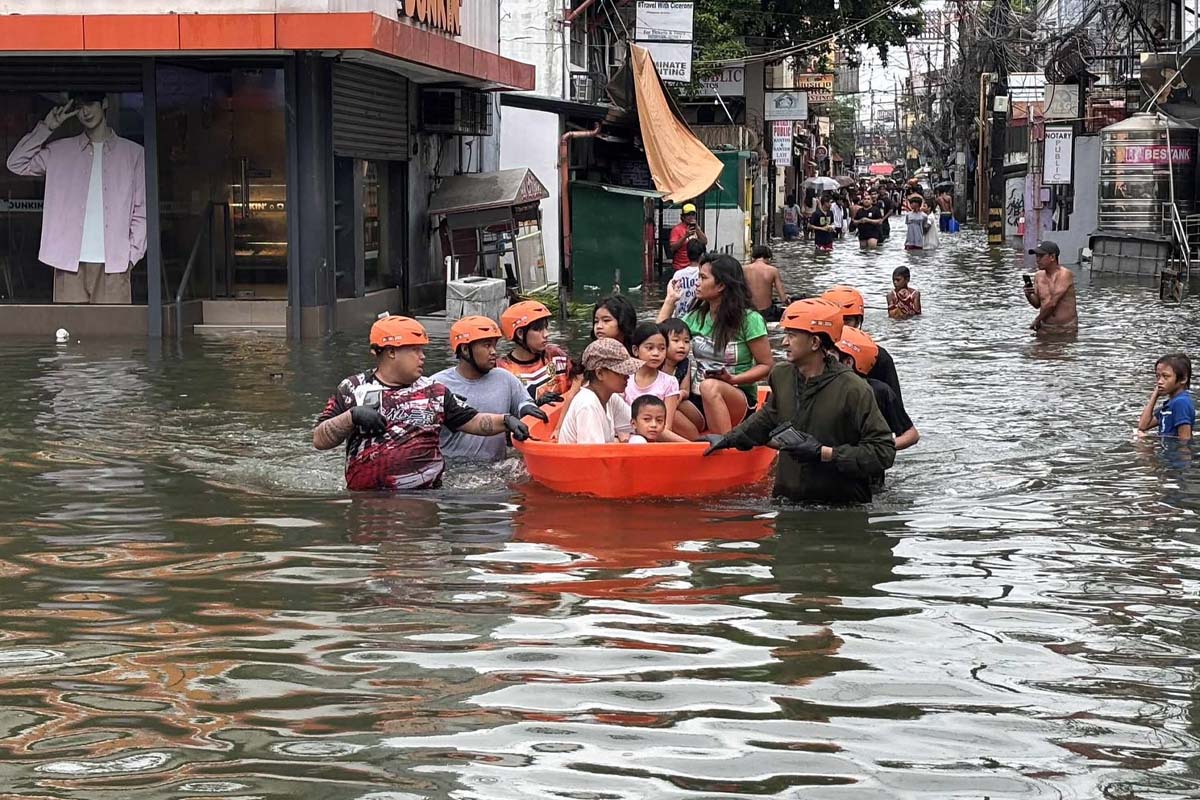At long last, the Marcos administration is openly admitting that its much-ballyhooed claim of prudent spending of the annual national government budget exists only in the figment of its imagination.
With billions of pesos – some estimates run into over a trillion pesos — lost every year to corruption through illicit transactions, including rigged biddings and ghost projects, how can anyone consider that to be wise, careful use of public money?
The disappointment and anger shown by President Ferdinand Marcos Jr. while inspecting long-delayed, poor-standard, or non-existent infrastructure projects looked authentic. But wasn’t he part of the process that allowed these shenanigans to happen?
It is laudable, however, that he has begun to put his foot down and denounced specifically the widespread corruption in flood control projects following a post-midterm elections realization over the poor showing of his senatorial slate in the May polls.
Since 2022, the president has been bragging about the policy of this administration “to ensure that every peso and every centavo that the government spends in its programs and projects will be to the benefit of all Filipinos.”
His first cousin, Speaker Ferdinand Martin Romualdez, was more hypocritical in boasting that “with utmost diligence,” the House of Representatives “will ensure” that every centavo of the national government budget “will be judiciously spent.” Yet he was instrumental in inserting too many lump sum items for all sorts of questionable cash assistance, such as the P26-billion Ayuda Para sa Kapos Ang Kita Program in the 2024 and 2025 budget.
For 2026, Malacañang submitted to Congress a P6.793 trillion, which is 7.4% higher than this year’s P6.326 trillion. The administration’s Build Better More program has been allocated P1.556 trillion, of which P881.3 billion and P197.3 billion are, respectively, for the Department of Public Works and Highways and Department of Transportation — two of the most corruption-prone agencies.
Will the top 15 contractors, which the president has tagged to have cornered P100 billion, or 20% of the entire P545-billion budget for flood control projects that have been undertaken since the start of his term in 2022, still be allowed to participate in these projects? Many of those contractors are into other infrastructure and supply contracts. Will these also be investigated? How far will the investigations go, and how will they be held accountable?
So far, Marcos has ordered a comprehensive audit and transparency only of flood-control projects in the past three years. Most of those contractors have been in this kind of business for decades, apparently in cahoots with officials of the various agencies, lawmakers and local government officials. How can we be assured of an honest-to-goodness investigation that could make the promise of judicious spending a reality?
Doubts have been raised over the credibility and impartiality of the investigations by the lawmakers and the DPWH, considering that those suspected of collusion in the questionable projects come from their ranks. Indeed, this poses a big challenge to the president, given the complexity of the problem and the extent of the apparent conspiracy, prompting some to consider it a well-entrenched crime syndicate involving whopping amounts of public money.
The shaming of the contractors and government officials, as well as their relatives proudly flaunting their lavish lifestyles, doesn’t seem enough, considering the loss of lives and destruction to property that their insatiable greed for money has caused. Yet, some of the so-called “nepo kids” even have the gall to play victim and refuse to recognize that their ostentatious display of wealth was a product of anomalous transactions involving public money.
(Nepo kids refers to children of influential persons who benefit from their parents’ connections and status in various industries. Nepo is short for nepotism, or favoritism granted to relatives or friends by those in power.)
How this episode in the country’s politics will evolve in the months or years ahead should leave valuable lessons for Filipinos to keep in mind during elections. It should make more people vigilant in seeing to it that state resources are used properly for the benefit of the majority.
The current brouhaha over fictitious and anomalous flood-control projects necessitates closer monitoring of how Congress will play around the proposed P6.793 trillion budget for 2026. Can the president keep his vow in his state of the nation address last July that he will veto the Congress-approved budget program if it deviates from his administration’s priorities, particularly if it includes funds misuse or poorly executed programs?
The views in this column are those of the author and do not necessarily reflect the views of VERA Files.
This column also appeared in The Manila Times

